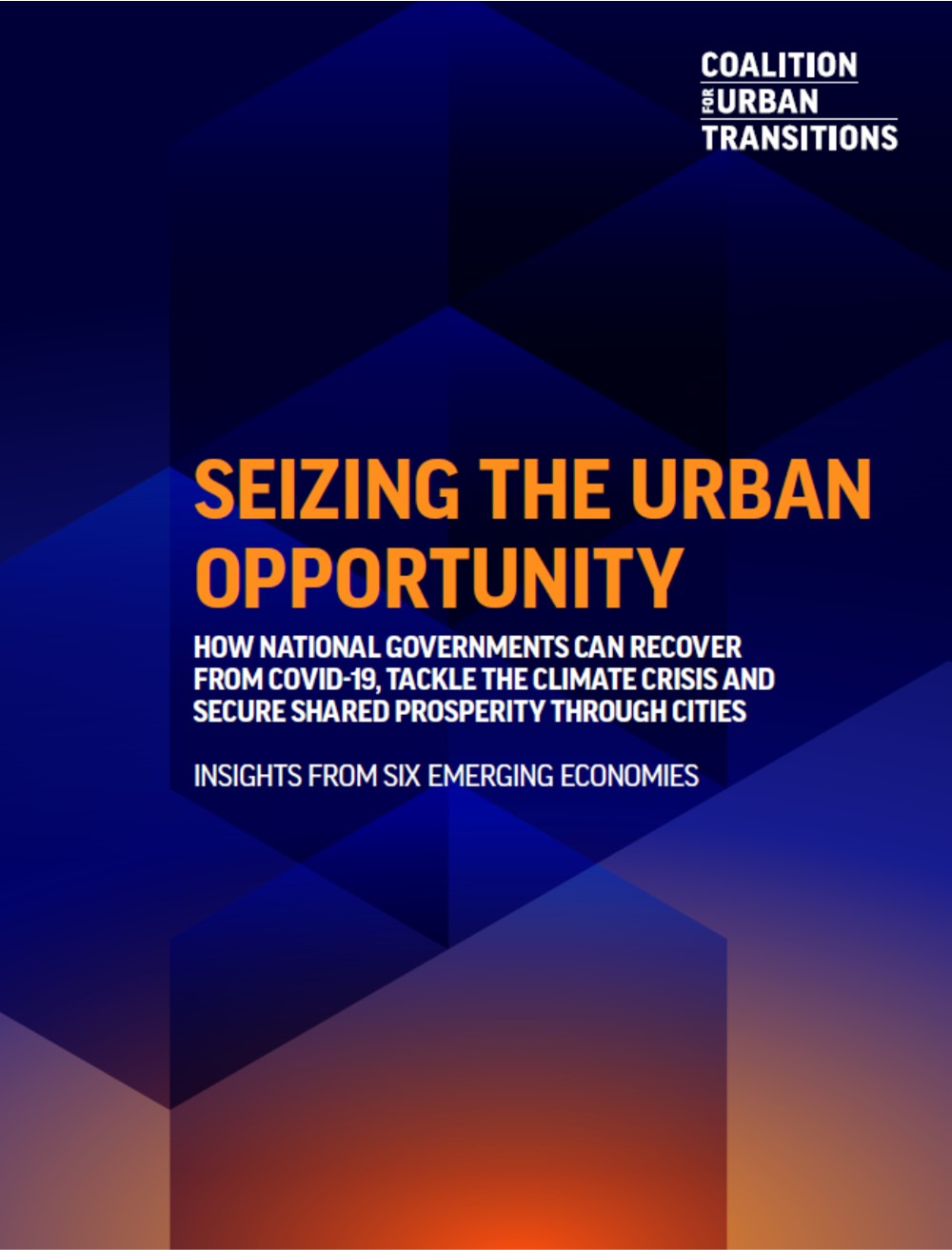National governments can spur COVID-19 recovery, achieve shared prosperity and drive climate action through national policies and targeted investments to decarbonise cities and make them more resilient. This report shows the power of urban transformation and the many ways to achieve it by looking up close at six major emerging economies: China, India, Indonesia, Brazil, Mexico and South Africa.
Cities are vital to solving the triple challenges of COVID-19 recovery, sustainable and inclusive development, and climate change; but they need national leadership and support to realise their potential. This new report builds on previous research from the 2019 flagship report, Climate Emergency, Urban Opportunity, which found that national governments hold the key to urban transformations as they drive or control key policy realms and are responsible for mobilising resources at the scale needed.
This is a pivotal time for national governments, as the choices they make amid the COVID crisis can put their countries on track for a more prosperous and resilient future, or accelerate the climate emergency. By 2030, investment in urban infrastructure must be directed towards zero-carbon, resilient, and inclusive development if cities are to reach their potential for delivering the emission reductions needed for a well below 2°C climate scenario. This report seeks to build momentum for enhanced climate ambition by national governments and other actors ahead of COP26 in Glasgow.
Recognising that developing and emerging economies face particularly complex challenges exacerbated by the pandemic, the report focuses on six key countries: China, India, Indonesia, Brazil, Mexico, and South Africa. Together, they produce about a third of global GDP and 41 percent of CO2 emissions from fossil fuel use. They are also home to 42 percent of the world’s urban population. The extent to these six major emerging economies can unleash the power of cities to catalyse sustainable, inclusive and resilient growth is therefore critical not only for their future trajectory, but for the whole planet.
